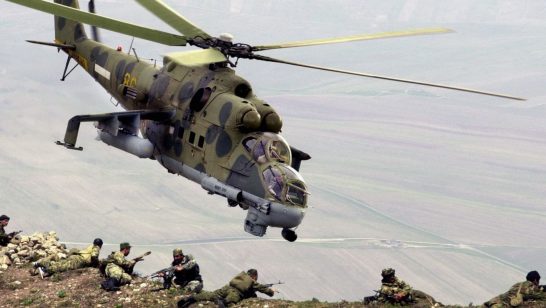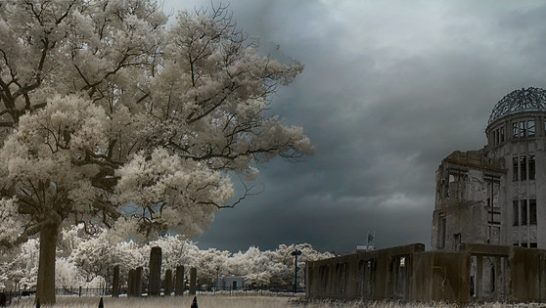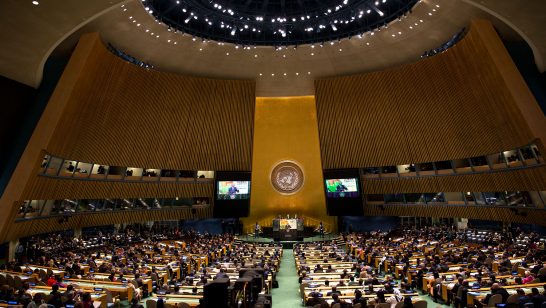77 senior political, military and diplomatic figures from across Europe, including from Russia, have expressed their concern over an inter-state conflict over Syria and support measures to fight ISIS whilst bringing the Syrian conflict to a close.
This group endorses the key recommendations from the latest paper from the Task Force on Cooperation in Greater Europe.
- To recap, the original Task Force paper stipulated that:Syria conflict has become a proxy war with multiple actors and differing objectives. As such, there is a danger that an accident, military incident or an unauthorised action could spark a direct military confrontation between the external states involved (including Russia, the United States, Iran, Saudi Arabia, Turkey and the UK) in the absence of effective communication channels.
- The group calls on all states involved to avoid any actions that may be misinterpreted as a direct attack on other state’s forces, operating in the vicinity of Syria and inside the country (air forces, Special Forces, advisers, etc.). In particular, they appeal for the lessening of tensions between Turkey and Russia and urge the political leadership in both countries to work towards reconciliation.
The paper brings forward three recommendations:
1. Avoiding an inter-state conflict over Syria.
With the danger that a proxy war in Syria can turn into a direct interstate conflict, the paper calls on all states involved to proceed with the utmost caution and avoid any actions that may be misinterpreted as a direct attack on other state’s forces operating in the vicinity of Syria and inside the country (air forces, special forces, advisers, etc.). In case of any incidents, there should be direct contact between the leaders, bureaucracies and the militaries to avoid further escalation.
2. Re-focusing on fighting ISIS and preventing its re-emergence.
The group argue that it would be a grave mistake to lessen the pressure on ISIS as all states in Europe continue to remain exposed to the threat of terrorism, flow of radicalism, and activities of terrorist recruiters. They call for an effective joint strategy addressing all dimensions of ISIS activity: supporting regional allies in rolling back ISIS territorial gains, defeating its terrorist network worldwide, and countering the ideology and propaganda of ISIS.
3. Bringing the Syrian conflict to a close.
The Task Force members support the efforts to maintain a cessation of hostilities, but they are deeply concerned about the possibility that the current ceasefire may collapse and open warfare would resume. They suggest that stability can be reached only through realistic political arrangement, not shaky ceasefires and call for setting realistic parameters for a new constitutional settlement in Syria. This would include the prolongation of the existence of important elements of the current government and state apparatus, as well as a viable power-sharing arrangement with the moderate opposition, respect for minority rights, and guarantees of security and non-persecution for the combatants (except those responsible for terrorism and war crimes).
For a number of states, the prospect of Assad staying in power beyond the end of the transition process remains a red line. The paper suggests that those interested in his departure should propose that the Syrian President pledge his resignation from office and ‘voluntary’ withdrawal from political life at a specific point of the transition.
The Task Force stands in stark opposition to the fragmented and often adversarial international approach to the conflicts of the Middle East. In spite of their political differences, the high-level signatories agree on the need to re-invest in multilateral diplomacy to tackle the Middle Eastern crisis.
The new group of endorsers behind these proposals adds growing weight to those expressing concern over the trajectory of the Syrian crisis.
The Task Force position paper, ‘Countering the Threats from the Middle East’, was issued in August in the name of the following Russian and European leadership figures:
- Igor Ivanov, former Foreign Minister, (Russia);
- Adam Daniel Rotfeld, former Foreign Minister, (Poland);
- Des Browne, former Defence Secretary,(UK);
- Özdem Sanberk, Director of the International Strategic Research Organisation, former Undersecretary of the Ministry of Foreign Affairs (Turkey) (Task Force Co-Chair);
- Hikmet Cetin, former Foreign Minister, (Turkey);
- Malcolm Rifkind, former Foreign and Defence Secretary (UK);
- Paul Quiles, former Defence Minister, (France);
- Borys Tarasyuk, Member of the Ukrainian Parliament and former Foreign Minister (Ukraine);
- Anatoliy Adamishin, President of the Non-Governmental Organization “Association of Euro-Atlantic Cooperation”, Ambassador Extraordinary and Plenipotentiary of the Russian Federation
- Igor Yu. Yurgens, Chairman of the Board of the Institute of Contemporary Development, Vice President of the Russian Union of Industrialists and Entrepreneurs (Russia);
- Alexei Gromyko, Director of the Institute of Europe of the Russian Academy of Sciences (IE RAS) (Russia);
- Tony Brenton, former Ambassador to Russia (UK);
- Tarja Cronberg, Former Member of the European Parliament and former Director of the Copenhagen Peace Research Institute (Finland);
Their recommendations have now been supported by a much larger group, in total this includes:
UK
1. Menzies Campbell – Former Leader of the Liberal Democrats (United Kingdom);
2. Charles Clarke – Former Home Secretary (United Kingdom);
3. Charles Guthrie – Former Chief of the Defence Staff (United Kingdom);
4. Nick Harvey – Former Minister of State for the Armed Forces (United Kingdom);
5. David Hannay – Former Ambassador of the UK to the EEC, Former Ambassador of the UK to the UN (United Kingdom);
6. Tom McKane – Former Director General for Strategy and Security Policy, Ministry of Defence (United Kingdom);
7. Tom King – Former Defence Secretary (United Kingdom);
8. David Owen – Former Foreign Secretary (United Kingdom);
9. David Richards – Former Chief of the Defence Staff (United Kingdom);
10. George Robertson – Former NATO Secretary General, Former Secretary of State for Defence (United Kingdom);
11. Sir John Stanley – former Minister of State for the Armed Forces (United Kingdom);
12. David Triesman – Former Foreign Office Minister (United Kingdom);
13. William Wallace – Liberal Democrat Spokesman in the House of Lords (United Kingdom);
14. Alan West – Former First Sea Lord and Commander in Chief of the Royal Navy (United Kingdom);
15. Shirley Williams – Former Leader of the Liberal Democrats in the House of Lords, Former Adviser on Nuclear Proliferation to the Prime Minister (United Kingdom);
16. Des Browne, former Defence Secretary (United Kingdom) (Task Force member);
17. Malcolm Rifkind, former Foreign and Defence Secretary (United Kingdom) (Task Force member);
18. Tony Brenton, former Ambassador to Russia (United Kingdom) (Task Force member);
France
19. Bernard Norlain – Former Air Defense Commander and Air Combat Commander (France);
20. Michel Rocard, Former Prime Minister (France)
21. Paul Quiles, former Defence Minister, (France) (Task Force member);
Germany
22. Wolfgang Ischinger – Chairman of the Munich Security Conference (Germany);
23. Walter Kolbow – Former Deputy Minister of Defence (Germany);
24. Klaus Naumann – Former Chief of Staff of the Bundeswehr, Former Chairman of the NATO Military Committee (Germany);
25. David McAllister – Vice President of the European People’s Party (EPP) at the European Parliament, former Prime Minister of Lower Saxony (Germany);
26. Rudolf Scharping – Former Defence Minister (Germany);
27. Klaus Wittman – Former Bundeswehr general, Senior Fellow Aspen Institute (Germany);
Russia
28. Igor Ivanov – former Foreign Minister, (Russia);
29. Boris Pankin – former Foreign Minister of the USSR (Russia);
30. Dmitry Polikanov – Chairman of the Trialogue Club and member of the Expert Council of the Russian Government
31. Alexander Bessmertnykh, former Foreign Minister (Russia);
32. Anatoly Diakov – Director, Center for Arms Control, Energy and Environmental Studies at the Moscow Institute of Physics and Technology (Russia);
33. Sergey Rogov – Director of the Institute for the US and Canadian Studies of the Russian Academy of Science (Russia);
34. Anatoliy Adamishin, President of the Non-Governmental Organization “Association of Euro-Atlantic Cooperation”, Ambassador Extraordinary and Plenipotentiary of the Russian Federation (Task Force member);
35. Igor Yu. Yurgens, Chairman of the Board of the Institute of Contemporary Development, Vice President of the Russian Union of Industrialists and Entrepreneurs (Russia) (Task Force member);
36. Alexei Gromyko, Director of the Institute of Europe of the Russian Academy of Sciences (IE RAS) (Russia) (Task Force member);
Belgium
37. Willy Claes – Former NATO Secretary General and former Foreign Minister (Belgium);
Italy
38. Giancarlo Aragona – Former Secretary General of the Organization for Security and Cooperation in Europe (Italy);
39. Francesco Calogero – Former Secretary-General of Pugwash Conferences on Science and World Affairs (Italy);
40. Giampaolo Di Paola – Former Minister of Defence (Italy);
41. Giorgio La Malfa – Former Minister for European Affairs (Italy);
42. Carlo Trezza – Former Ambassador to the Republic of Korea and Italy’s Special Envoy for Disarmament and Non-proliferation. Outgoing Chairman of the Missile Technology Control Regime (Italy);
43. Stefano Silvestri – Former Under Secretary of State for Defence and current President of the International Affairs Institute (Italy);
Turkey
44. Mustafa Aydin – President of the International Relations Council of Turkey (Turkey);
45. Vahit Erdem – Former Head of the Turkish Delegation to the NATO Parliamentary Assembly (Turkey);
46. Faruk Loğoğlu – Former Ambassador the United States (Turkey);
47. Özdem Sanberk, Director of the International Strategic Research Organisation, former Undersecretary of the Ministry of Foreign Affairs (Turkey) (Task Force Co-Chair) (Task Force member);
48. Hikmet Cetin, former Foreign Minister, (Turkey) (Task Force member);
Sweden
49. Hans Blix – Former Foreign Minister and former IAEA Director General (Sweden);
50. Rolf Ekéus – Former Ambassador to the United States, Ambassador to the Conference on Disarmament and Director of the United Nations Special Commission on Iraq (Sweden);
51. Henrik Salander – Former Ambassador to the Conference on Disarmament, Secretary-General of the Weapons of Mass Destruction Commission (Sweden);
Finland
52. Jaakko Iloniemi – Former Ambassador to the United States, former Ambassador to the CSCE and former Deputy Head of Mission to the United Nations (Finland);
53. Juhani Kaskeala – Former Chief of Defence (Finland);
54. Raimo Väyrynen – Former President of the Academy of Finland
55. Tarja Cronberg – Former Member of the European Parliament and former Director of the Copenhagen Peace Research Institute (Finland), (Task Force member);
Poland
56. Adam Daniel Rotfeld – Former Foreign Minister (Poland), Task Force Co-Chair;
57. Sławomir Dębski – Director of the Centre for Polish-Russian Dialogue and Understanding (Poland);
Netherlands
58. Ruud Lubbers – Former Prime Minister (Netherlands);
59. Hans Van den Broek – Former Foreign Minister (Netherlands);
60. Marietje Schaake – Member of the European Parliament (Netherlands);
Norway
61. Gro Brundtland – Former Prime Minister and former Director-General of the World Health Organisation (Norway);
62. Kjell Magne Bondevik – Former Prime Minister (Norway);
Denmark
63. Uffe Ellemann-Jensen – Former Foreign Minister (Denmark);
Georgia
64. Tedo Japaridze – Member of Parliament and Chairman of the Foreign Relations Committee (Georgia);
Czech Republic
65. Jan Kavan – Former Deputy Prime Minister, Foreign Minister and former President of the UN General Assembly (Czech Republic);
Hungary
66. János Martonyi – Former Minister for Foreign Affairs (Hungary);
67. Balázs Csuday – Permanent Representative of Hungary to the United Nations (Hungary);
Albania
68. Fatmir Mediu – Former Minister of Defence (Albania);
Bulgaria
69. Soloman Passy – Former Chairman of the United Nations Security Council, former Foreign Minister (Bulgaria);
70. Todor Tagarev – Former Defence Minister (Bulgaria);
Romania
71. Ioan Paşcu – Vice-President of the European Parliament and Vice Chair of the Committee on Foreign Affairs (Romania);
Austria
72. Wolfgang Petritsch – Former EU Special Envoy for Kosovo & Former High Representative for Bosnia and Herzegovina (Austria);
Croatia
73. Ivo Slaus – Former Member of Parliament, Former member of the Foreign Affairs Committee (Croatia);
74. Davor Božinovic – Former Minister of Defence (Croatia);
Serbia
75. Goran Svilanović – Secretary General, Regional Cooperation Council (Serbia);
Ukraine
76. Borys Tarasyuk, Member of the Ukrainian Parliament and former Foreign Minister (Ukraine);
77. Anatoliy Grytsenko – Former Defence Minister; Former Chairman of the National Security and Defence Committee in the Ukrainian Parliament



